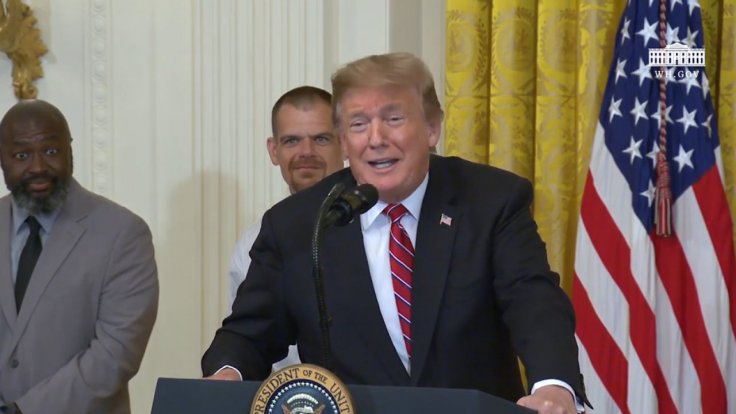
U.S. President Donald Trump said on Monday he was ready to impose another round of punitive tariffs on Chinese imports if he cannot make progress in trade talks with China's President at a Group of 20 summit later this month.
Since two days of talks to resolve the U.S.-China trade dispute last month in Washington ended in a stalemate, Trump has repeatedly said he expected to meet President Xi Jinping at the June 28-29 summit in Osaka, Japan. China has not confirmed any such meeting.
Trump said last week he would decide after the meeting of the leaders of the world's largest economies whether to carry out a threat to impose tariffs on at least $300 billion in Chinese goods.
In comments to reporters on Monday, Trump said he still thought the meeting with Xi would happen.
"We are scheduled to talk and to meet. I think interesting things will happen. Let's see what happens," Trump told reporters at the White House.
The United States has already imposed 25% tariffs on $250 billion worth of goods.
China's foreign ministry said on Monday that China is open to more trade talks with Washington but has nothing to announce about a possible meeting.
Tensions between Washington and Beijing rose sharply in May after the Trump administration accused China of having reneged on promises to make structural economic changes during months of trade talks.
The United States is seeking sweeping changes, including an end to forced technology transfers and theft of U.S. trade secrets. It also wants curbs on subsidies for Chinese state-owned enterprises and better access for U.S. firms in Chinese markets.
On May 10, Trump raised tariffs on $200 billion of Chinese goods up to 25% and took steps to levy duties on an additional $300 billion in Chinese imports. Beijing retaliated with tariff hikes on a revised list of $60 billion in U.S. goods.
The U.S. government has also angered China by putting Huawei Technologies Co Ltd on a blacklist that effectively bans U.S. companies from doing business with the Chinese firm, the world's biggest telecoms equipment maker.
Investors worry China will retaliate by putting U.S. companies on a blacklist or banning exports to the United States of rare earth metals, which are used in products such as memory chips, rechargeable batteries and cell phones.
Fitch Ratings said on Monday any such move would be disruptive to the U.S. technology sector and could hurt some Chinese sectors as well, though it added that it was too early to assess potential credit implications.
In an interview with CNBC, Trump said the Huawei dispute could be addressed as part of a trade deal with China.
DEAL WITH MEXICO
The escalating trade war between the world's two largest economies has unnerved financial markets with worries that it could further disrupt global manufacturing and supply chains and push an already slowing global economy into recession.
On Sunday, International Monetary Fund Managing Director Christine Lagarde said resolving the current trade tensions should be the top priority for G20 economies.
China reported on Monday its exports unexpectedly grew 1.1 percent in May from a year ago despite the higher U.S. tariffs, but imports fell the most in nearly three years. Some analysts suspect Chinese exporters may have rushed out shipments to the United States to avoid potential new U.S. tariffs.
Many U.S. business groups oppose the tariffs, with companies worried about slowing demand as they pass higher prices along to consumers and manufacturers across a range of products.
Late last month Trump said he would impose tariffs on Mexican goods if Mexico did not agree to take strong steps to curb the flow of mostly Central American migrants crossing the U.S.-Mexico border.
Washington and Mexico City reached a deal on Friday to avert the tariffs, removing for the time being at least the prospect that the United States would find itself in trade wars with two of its three largest trading partners.
Global equities rose on Monday and the U.S. dollar gained against a basket of currencies. The Mexican peso rose more than 2% against the greenback, reversing most of its losses from the past couple of weeks.
Trump, who has embraced protectionism as part of an "America First" agenda, said on Monday the tariff threat on Mexico would be reinstated if Mexico's Congress did not ratify another part of the migration pact.








